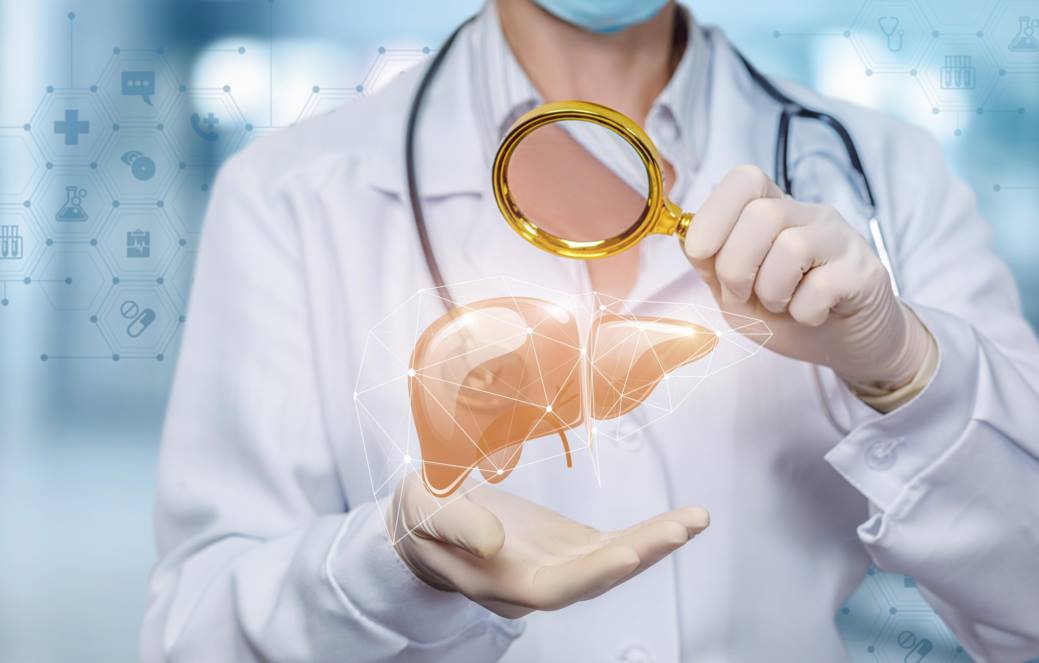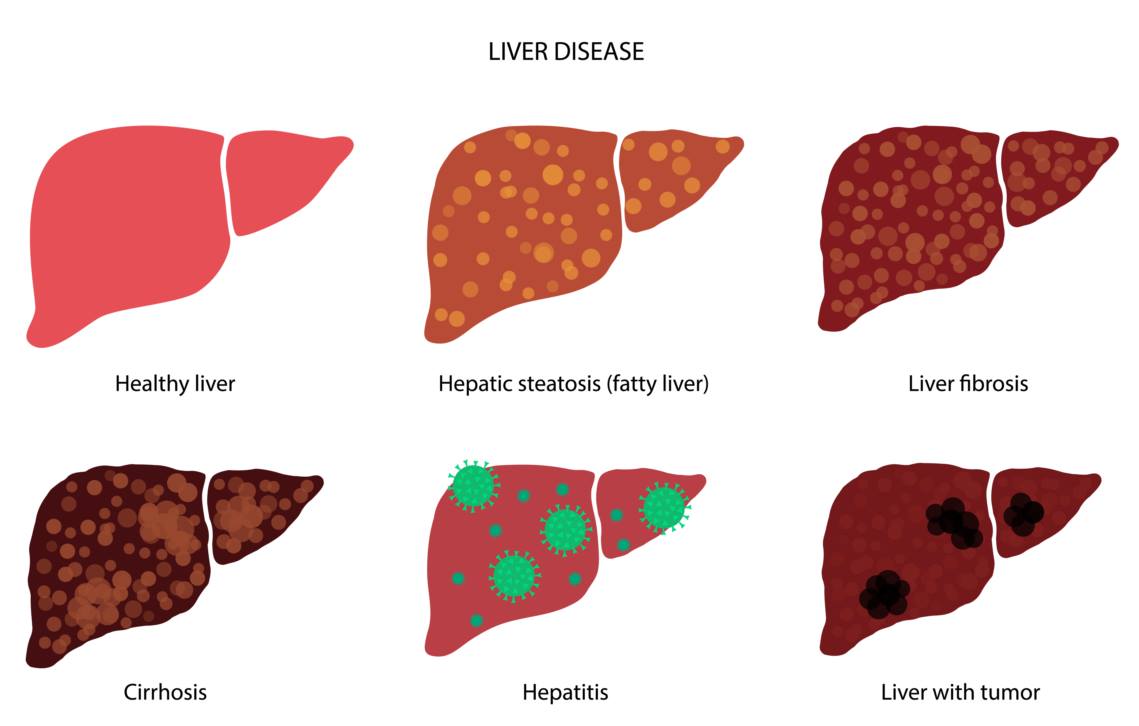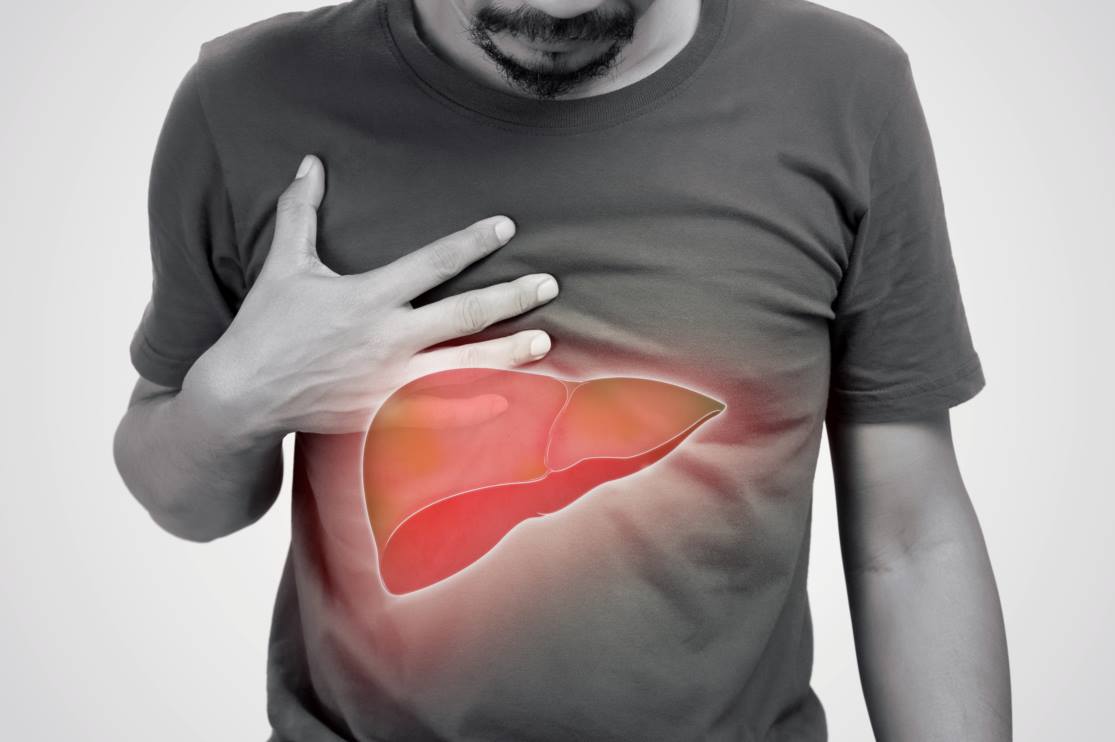Spotting Liver Damage: Warning Signs to Watch For

The liver is a vital organ located on the right side of your abdomen, just below the rib cage. This football-sized organ’s primary functions include helping with digestion and eliminating toxic substances from your body. Liver disease can be inherited or caused by external factors like alcohol abuse, obesity, or viral infections. In case of continuous damage, your liver can develop scarring known as cirrhosis, which can eventually lead to life-threatening liver failure.
What Does Early Liver Damage Feel Like?
Various substances can harm your liver health. Although liver tissue has the ability to regenerate, prolonged damage can result in the growth of scar tissue that will eventually replace healthy liver tissue, preventing the liver from carrying out its vital functions. One of the most common causes of liver damage is alcohol consumption. When the cause of liver damage is alcohol abuse, experts refer to it as alcohol-related liver disease.
Educating yourself about the early signs of liver damage is important because they can be easily overlooked. Some less obvious symptoms include nausea, fatigue, weight loss without trying, stomach ache, and swelling in the ankles and legs. Severe liver damage can also cause changes in your skin or eye color. Although these early signs can be linked to other health problems, they usually indicate liver damage.
In general, experts divide liver disease into four stages. Alcohol-related liver disease can rapidly progress to its final stage. These are the four stages of liver failure:
- First stage: inflammation or hepatitis, where the liver tries to eliminate toxic substances by widening. At this stage, liver disease usually causes little to no noticeable symptoms.
- Second stage: scarring, also known as fibrosis. This stage involves chronic inflammation with alteration of the liver shape and blood flow while scar tissue replaces healthy liver tissue. However, the liver can still reverse some of the damage.
- Third stage: cirrhosis, involving irreversible damage to the liver functions. Cirrhosis patients experience severe symptoms, such as pain and jaundice, and are at a high risk of developing cancer.
- Fourth stage: liver failure. This is where the liver completely shuts down and stops working. People with prolonged liver damage can experience acute liver failure over the course of several days. Chronic liver failure causes more severe symptoms in different body parts, including cognitive problems. Patients with liver failure require a liver transplant to save their life.

What Are The 14 Warning Signs of A Damaged Liver?
There isn’t an exhaustive list of early liver damage symptoms. Still, you should be familiar with the most common ones and speak to a medical professional if you ever experience them. Here are the 14 warning signs of a damaged liver that you should know:
- Loss of appetite
- Fluid retention
- Changes in urine and stool
- Drastic weight loss without dieting
- Jaundice of the skin and eyes
- Nausea and vomiting
- Abdominal pain
- Gastrointestinal issues
- Itchy skin and other skin sensitivities
- Bad breath
- Fatigue
- Dark circles under the eyes
- Bruising easily
- Spider veins
Liver damage may not always show symptoms until it becomes severe. However, if you are observant and familiar with the early warning signs, you may be able to detect them before your condition worsens.

How Do I Check If My Liver Is OK?
Detecting the cause and level of liver damage is vital for obtaining quality treatment. Your doctor will compile a health history and begin a detailed physical examination. These are the primary examinations for determining the health state of your liver:
- Liver function tests - a group of special blood tests for diagnosing liver disease alongside other types of blood tests for related genetic conditions.
- Imaging tests - CT scan, ultrasound, and MRI can help detect liver disease.
- Biopsy - Examining a tissue sample from your liver may help identify liver disease. Typically, a liver biopsy involves using a lengthy needle to extract a tissue sample through the skin, which is then sent to a lab for analysis.

Conclusion
The liver, which has many important tasks, can come under attack due to virus infections, toxins, contaminants, and illnesses. Despite a present health threat and damage, it is a remarkably resilient organ showing few to no symptoms of something wrong. This is why the awareness of possible early warning signs can be life-saving.











